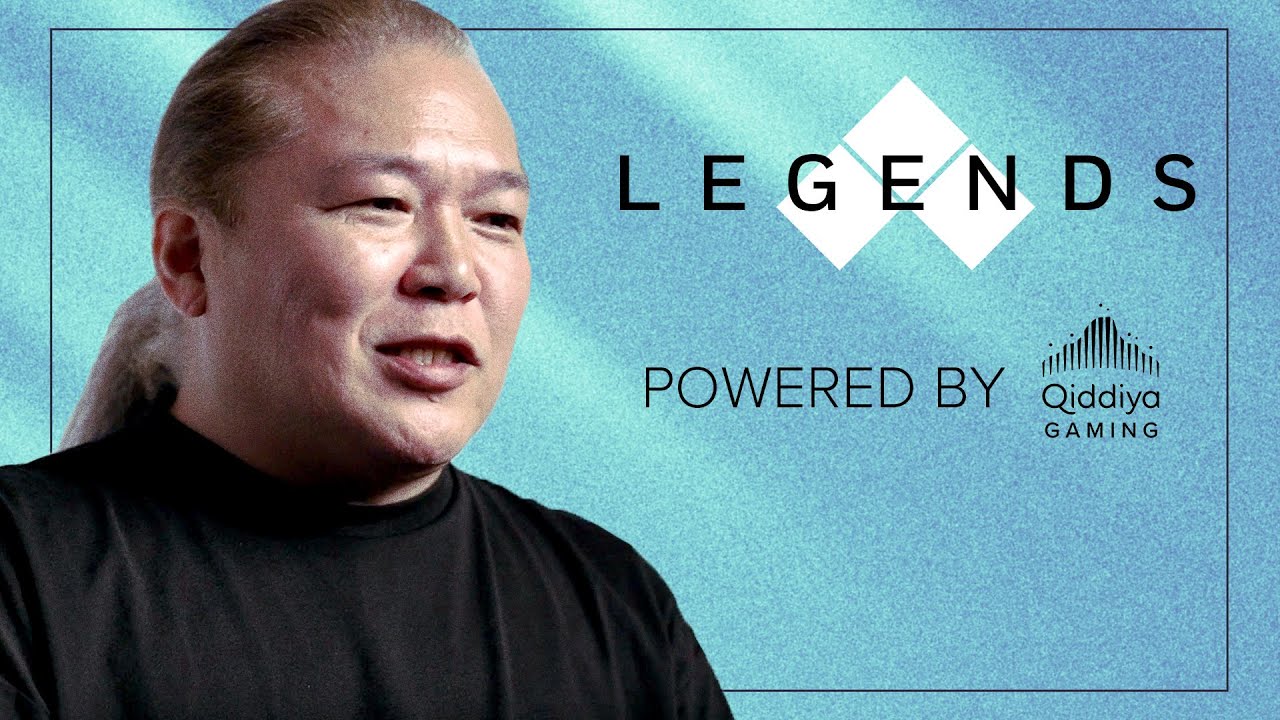
It almost feels like I should apologize to Matsuda Yasuaki for writing this article. In 2023, Matsuda became the Chief of Tournament Operations for Evo Japan. As he told 4Gamer.net in an interview, "It's not so much a policy, but to put it simply, the focus of tournaments should be on the players. That's why I don't want to stand in front and take attention away from them. There are people who come up and speak to me or take photos of me at events, but I always tell them to put more focus on the players attending."
It's a great policy to live by. It's because Matsuda understood ideas like this that you cannot possibly tell the full story of fighting games in the 21st century without telling his story.
Matsuda took the Evo Japan position reluctantly. "If possible, I would have preferred to remain behind the scenes," he told 4gamer.net "But if there is a benefit to those involved for me to step out into the front, I decided I should do so. And another more simple reason is that recently I've been getting asked to do this more and more, so I just couldn't refuse any more."
Once you understand Matsuda's history, it's easy to understand how he found himself in this position. Just one year after the first edition of the Evolution Championship Series in 2002, Japan would get its own premier tournament series: Tougeki, also known as Super Battle Opera. In collaboration with popular monthly gaming magazine Arcadia, the series became Japan's go-to tournament for nearly a decade. An SBO championship was one of the most prestigious accolades in fighting games. Early champions like Daigo Umehara (Street Fighter II: Super Turbo 3v3, 2003), Tokido (Capcom vs. SNK 2 1v1, 2003), Haitani (Vampire Savior 1v1, 2004) and Mago (Capcom vs. SNK 2 3v3, 2004) have gone on to have some of the greatest fighting game careers of all time.
Super Battle Opera was far from Matsuda's first success in fighting games. He hosted a number of national tournaments for various games, most notably team tournaments like Virtua Fighter 5's Beat-Tribe Cup and Street Fighter III: Third Strike's Cooperation Cup that are still running today, with their next iteration coming at the upcoming Evo Japan 2024.
Alongside his tournament organizing, which he has estimated at upwards of 50 events per year https://dengekionline.com/articles/43379/, atsuda is the owner of Game Newton Arcades, with venues in Oyama and Tokyo. These arcades aren't just places to play games. They're also practically museums, filled with memorabilia and trophies won by the players who grew up on Game Newton's machines. Keeping the lights on has been a challenge, and one that would have been impossible without Super Battle Opera and the event running gigs Matsuda was able to pull in through his successes with the tournament.
Super Battle Opera, despite its prestige, was going through similar struggles to pay the bills. In 2012, Arcadia magazine, the event's sponsor, revealed that it would be reducing publication from monthly to bi-monthly in an attempt to cut costs. To keep the event going, Arcadia and Super Battle Opera partnered with GAME SUMMER FESTIVAL 2012, a large outdoor event mostly for shoot'em up games held in Narita. There were some predictable issues like glare on the screens resulting from holding the tournament outside, but there was a bigger issue: Previous SBOs had always included an open last chance qualifier bracket. To participate in the 2012 edition at the festival, those who hadn't already qualified for the finals would have had to purchase an expensive ticket to the whole festival. Worse, the purchase only earned players entrance into a lottery for an LCQ slot, with no refunds if they didn't make it into the bracket.
With Arcadia reducing its production output, the writing was already on the wall, but the other issues with Super Battle Opera 2012 only confirmed that it would be the tournament's last year. The event has not returned since. Instead of languishing in the event's failure, Matsuda kept up his tournament organizing work across Japan and focused on keeping Game Newton Arcade going strong, work that only became harder after the COVID-19 pandemic hit.
Government restrictions during the pandemic forced the closures of many small arcades across Japan. Game Newton Arcades nearly experienced the same fate, and they would have if it wasn't for Matsuda's tireless fundraising work in 2020. With live fighting games absent from the scene during the pandemic, Matsuda also worked to fill the space by broadcasting talk shows with players twice a week, as well as uploading historical broadcasts of past national events.
Through his crowdfunding efforts, Matsuda raised over 7 million yen, or about $45,000. "Of course, the largest number of donations came from Japan," Matsuda told Dengeki about the efforts, "but we also received donations from all over the world, including the United States, China, Korea, Canada, and Australia."
"We were in a pinch this time," Matsuda said, "but I was very happy to hear people from all over the world say, 'Game Newton is the center of the world's arcade culture,' and 'This arcade must not be destroyed.' We thought that if there are people who feel this way, we have to do whatever it takes to keep it going."
Matsuda is a deep believer in the value of the offline fighting game, and his fundraising in 2020 showed just how much he cares about keeping it alive even as the world changes around him. "I think it's the live atmosphere that is unique to offline," he told Dengeki. "I don't think there is any other space where an unspecified number of people of completely different ages and occupations can enjoy the same hobbies together. I think this is one of the most attractive aspects of game arcades, and I want to preserve it as part of our culture. Even though the number of game arcades is decreasing, there are still many stores that are doing their best. The stores that remain are all very enthusiastic, and I would like to work together with them. As gaming events are increasingly online, live broadcast technology is evolving rapidly, and I would like to keep up with that while bringing out the unique charms of offline gaming."
Matsuda resisted stepping into the forefront and joining the Evo Japan team as long as he could, but in 2023, he finally shut everybody up the only way he knew how: by taking the gig he still holds today as the event's Chief Tournament Officer. It's a position that uniquely allows him to continue the work he has been at for decades now. "This is something I have thought about since the SBO days," he told 4gamer.net. "I want there to be one tournament every year that all the players can strive for."
Evo Japan has taken up the mantle as the tournament that not just Japan's FGC but the whole world can look towards as a yearly event. Matsuda has even managed to incorporate some of the team events that have been so close to his heart, with Cooperation Cup and Beat-Tribe Cup integrating into the Evo Japan main lineup this year.
"Recently, esports has been growing even more, and the world we once saw in our dreams is becoming a reality," Matsuda said. "Fighting game players are being recognized as pros, and they are becoming able to make a living off that alone. I may only be able to do a little bit,but if it can help grow the scene then I want to give it my all."
There can be no doubt that Matsuda has done exactly that. He has dedicated practically his whole adult life to the cause, and he is in no small part responsible for both the continued success of his nation's tournament scene and the survival of its arcade scene.
"'Fighting games will never die,' is something that I've always said," Matsuda told 4gamer.net. He's right that the spotlight usually belongs on the players. But Matsuda's life work is a major reason why that statement has proven true for so long, and why it will remain true long into the future. So for one day, he'll simply have to deal with us turning the spotlight towards him, although we promise we'll be back to the players soon.
See more of Matsuda-San's story in Evo Legends Powered By Qiddiya Gaming on EvoFGC:




